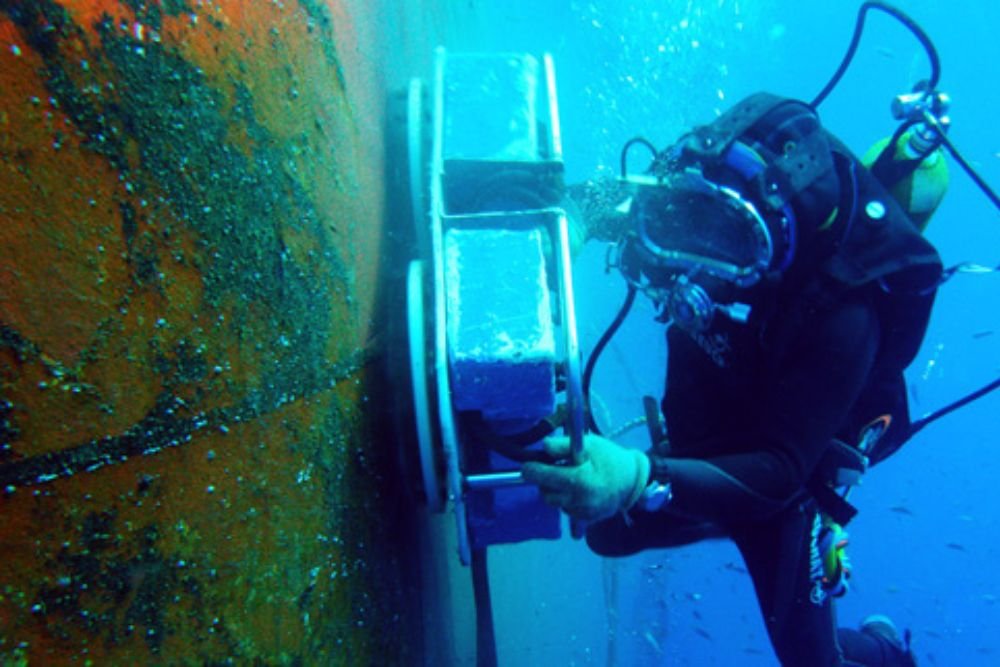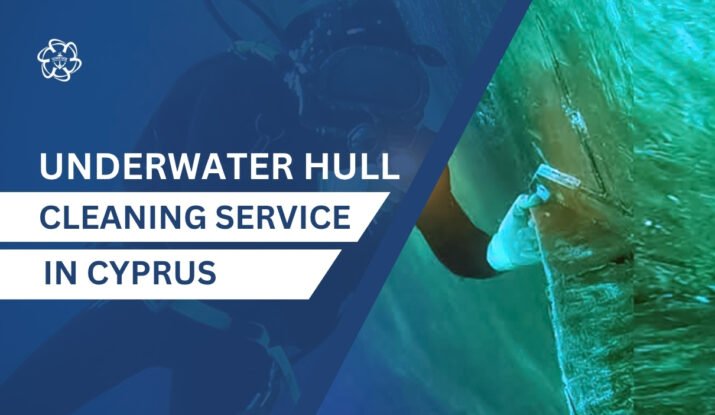Underwater Hull Cleaning in Cyprus, keeping ship hulls clean is crucial for smooth operations in Cyprus. Underwater hull cleaning prevents biofouling, enhances efficiency, and ensures compliance with local maritime regulations. As Cyprus becomes a key shipping hub, professional hull cleaning with advanced tools is essential. This guide explores the importance of underwater hull cleaning in Cyprus, discusses innovative cleaning methods, and highlights how services in Cyprus can optimize your vessels’ performance.
Understanding the Importance of Underwater Hull Cleaning in Cyprus
Efficient Underwater Hull Cleaning in Cyprus is essential, not optional. Over time, marine growth can accumulate on ship hulls, slowing them down and increasing fuel costs. Regular underwater cleaning ensures optimal vessel performance, reducing drag and fuel consumption.
In Cyprus, strict environmental regulations require proper hull maintenance for compliance and improved performance. Partnering with experts helps maintain high standards and prevents long-term damage while navigating these waters.
Environmental Regulations and Compliance in Cyprus Waters
Navigating environmental regulations in Cyprus is crucial for ship operators. The IMO emphasizes biofouling management to prevent harmful organisms from disrupting marine ecosystems.
Cyprus’ compliance laws mandate proper cleaning processes to safeguard marine life. Non-compliance can result in fines and operational delays, making it vital for vessels to partner with expert cleaning services familiar with local standards.
Cyprus advocates for sustainable maritime practices, so ship operators must ensure effective underwater hull cleaning in Cyprus using eco-certified tools like filtration systems. Adopting the right cleaning methods is essential for environmental protection and the well-being of those working near the water.
Common Types of Marine Growth Affecting Ships
Marine growth accumulates on ship hulls during time in open water, with barnacles, algae, and other biofouling attaching to the surface. This buildup hinders movement, resulting in increased fuel consumption.
Addressing marine organisms promptly is crucial to prevent lasting damage to hulls. Ships in Cyprus operate in busy waters, facing various types of marine growth that require specialized cleaning methods. Read on to learn more about biofouling and its impact on ships.
Algae, Barnacles, and Other Biofouling Organisms
Marine ecosystems can pose challenges for ships, primarily due to biofouling—the growth of organisms like algae, barnacles, and seaweed on hulls.
- Algae: Rapid buildup occurs when vessels remain stationary, reducing efficiency.
- Barnacles: These hard-shelled creatures cling to surfaces, increasing drag.
- Macro-fouling organisms: Larger growths can obstruct cleaning areas on the hull, worsening fuel consumption.
Neglecting regular cleaning allows these organisms to proliferate, leading from minor fouling to significant hull damage. By recognizing these issues, ship owners can implement effective cleaning methods and prevent larger operational problems.
Manual Diving Techniques vs. Mechanical Tools
Traditional manual diving and mechanical tools each have unique advantages for cleaning ship hulls.
| Manual Diving Techniques | Mechanical Tools |
|---|---|
| Effective in small, hard-to-reach areas | Faster cleaning over large surfaces |
| Suitable for sensitive coatings | More efficient on thick fouling |
| Require skilled divers | Often automated, needing fewer personnel |
Manual methods are essential for preserving antifouling coatings, while mechanical systems excel at removing heavy fouling. Combining both approaches is ideal, as each vessel has distinct needs. Quality cleaning services utilize both techniques for comprehensive hull maintenance.
Selecting a Professional Underwater Cleaning Service in Cyprus
Choosing the right underwater cleaning services in Cyprus is crucial for proper fleet care. A skilled team ensures your vessels are cleaned using eco-friendly methods. Look for companies offering a wide range of comprehensive underwater services suitable for all vessel sizes.
Trustworthy companies with the right certifications adhere to regulations and meet environmental standards. With reliable partners, ship owners can comply with IMO rules and ensure their vessels achieve optimal performance in the water.
A trusted provider like Cleanship.co delivers a full spectrum of underwater solutions tailored to vessels of all sizes, helping reduce drag, fuel consumption, and emissions.

Key Certifications and Safety Standards to Look For
When you are choosing hull cleaning services, it is important to look for the right certifications. These show that the work will be safe and good.
- ISO 9001:2015: This says the work meets high-quality standards.
- IMO Compliance Certifications: This checks that the right green methods are used.
- Lloyd’s Register: This shows respect for safety at work.
Certified hull cleaning gives you trust in cleaning jobs and lowers the risk of harm. You should pick partners who use tools that antifouling companies approve. This way, your cleaning work will match industry standards and imo rules.
Evaluating Experience, Equipment, and Customer Reviews
Top hull cleaning providers combine expertise, advanced underwater technology, and excellent service. Experienced companies can adapt to various ships and jobs.
Modern businesses utilize ROV systems to protect hull coatings during cleaning. Reputable companies feature customer reviews that reflect their commitment to quality work and care for their staff. Reading these reviews will help you assess the reliability of cleaning services in Cyprus waters.
Conclusion
Keeping your ship’s hull clean is crucial for optimal performance and compliance with Cyprus’s environmental regulations. Biofouling, which includes algae and barnacles, can increase fuel consumption and reduce your vessel’s lifespan. Regular cleaning is essential. By understanding various cleaning methods and hiring a skilled service, you can maintain your boat and protect the sea. For improved efficiency and adherence to regulations, consider seeking advice on the best underwater hull cleaning in Cyprus for your needs.
FAQs:
Q1. What are the benefits of regular underwater hull cleaning in Cyprus?
Regular underwater hull cleaning is essential for vessels in Cyprus. It prevents biofouling and keeps the hull clear, ensuring optimal fuel efficiency and performance. Reduced drag leads to lower running costs and preserves paint quality, all crucial for improved vessel performance.
Q2. Is underwater hull cleaning in Cyprus safe for my ship’s coating?
Trusted providers use certified cleaning methods and gentle techniques. Skilled divers and advanced tools maintain hulls without damaging antifouling coatings, ensuring they last longer.
Q3. How often should ships be cleaned underwater hull cleaning in Cyprus waters?
The hull cleaning schedule is based on vessel size, fouling severity, and water conditions in Cyprus. Regular underwater cleaning every 6 to 12 months maintains hull cleanliness, ensures optimal performance, and minimizes downtime.
Q4. Are there eco-friendly underwater cleaning methods available?
Absolutely! New filtration systems and green ROVs protect marine life by eliminating biofouling during cleaning. These methods also prevent the spread of unwanted species while adhering to environmental regulations.
Q5. What is the typical cost range for underwater hull cleaning in Cyprus?
Underwater hull cleaning in Cyprus prices vary based on vessel size, hull fouling, and cleaning method. In Cyprus, operators receive tailored rates that reflect their needs and the hull’s condition. Competitive rates fluctuate according to these factors.


